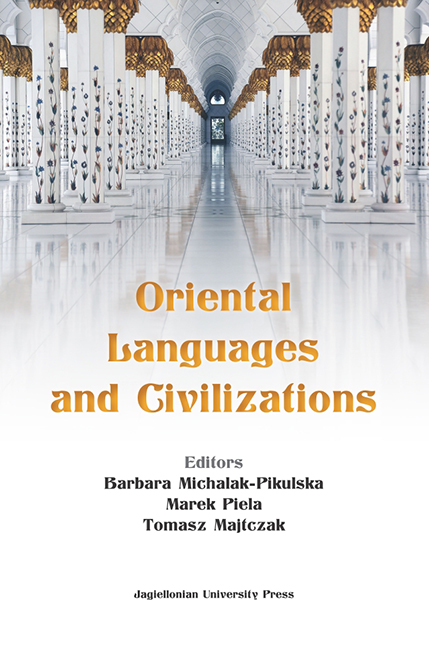Let’s talk globally, let’s talk locally – how toovercome communication problems. Arabic and Frenchlinguistic contacts in the discourse on the MoroccanInternet media
Published online by Cambridge University Press: 06 November 2021
Summary
Abstract
The present text is a short review of the results ofthe study on the language of Moroccan media –research conducted as a part of a broader academicproject, which diagnoses the current linguisticsituation of Maghreb, with particular emphasis onthe problem of linguistic contacts between theArabic and French language.
Focusing on linguistic processes and phenomena in theMoroccan digital media, the paper analyzes the roleof language in representing and constructing thesocial and cultural reality and explores ways toovercome communication challenges in the diversityof communities and cultures. The aim of this studyis to observe language contact and analyze itsnature.
Keywords: Morocco, media discourse, language contact,linguistic strategies, language choice
Multilingualism and the problem of languagechoice
Since the first research on the linguistic practices inmultilingual societies in the middle of the20th century, much attention has beenpaid to identify the factors which affect the choiceof linguistic code (Gumperz, & Naim, 1960;Ervin, 1964; Fishman, 1964 and others). Discourse,perceived in terms of linguistic pragmatics, startedto be understood as intentional use of language forcommunication in social situations (van Dijk, 1981).In turn, a communication situation has been definedas a set of external conditions in which a given actof communication takes place, including the elementsof physical world, which accompany the act ofspeech, such as the place and time of the act, aswell as interlocutors’ knowledge and conclusionsdrawn from the logical connection of extralinguisticfacts and presuppositions, not based on thelinguistic context (Wyrwas, & Sujkowska-Sobisz,2005, p. 87). Among the determinants of a linguisticchoice the subject of statement and participants inthe communication situation are usually listed. Itis the combination of these two factors that UrielWeinreich (1953) discusses when he talks about thedependence of the code on the so called speech event(p. 73).
When the nature of the codes used is considered, theconnection most often indicated is between thesubjects from everyday life and vernacular variantsand between formal subjects and variants regarded asmore literary.
- Type
- Chapter
- Information
- Oriental Languages and Civilizations , pp. 159 - 172Publisher: Jagiellonian University PressPrint publication year: 2022

